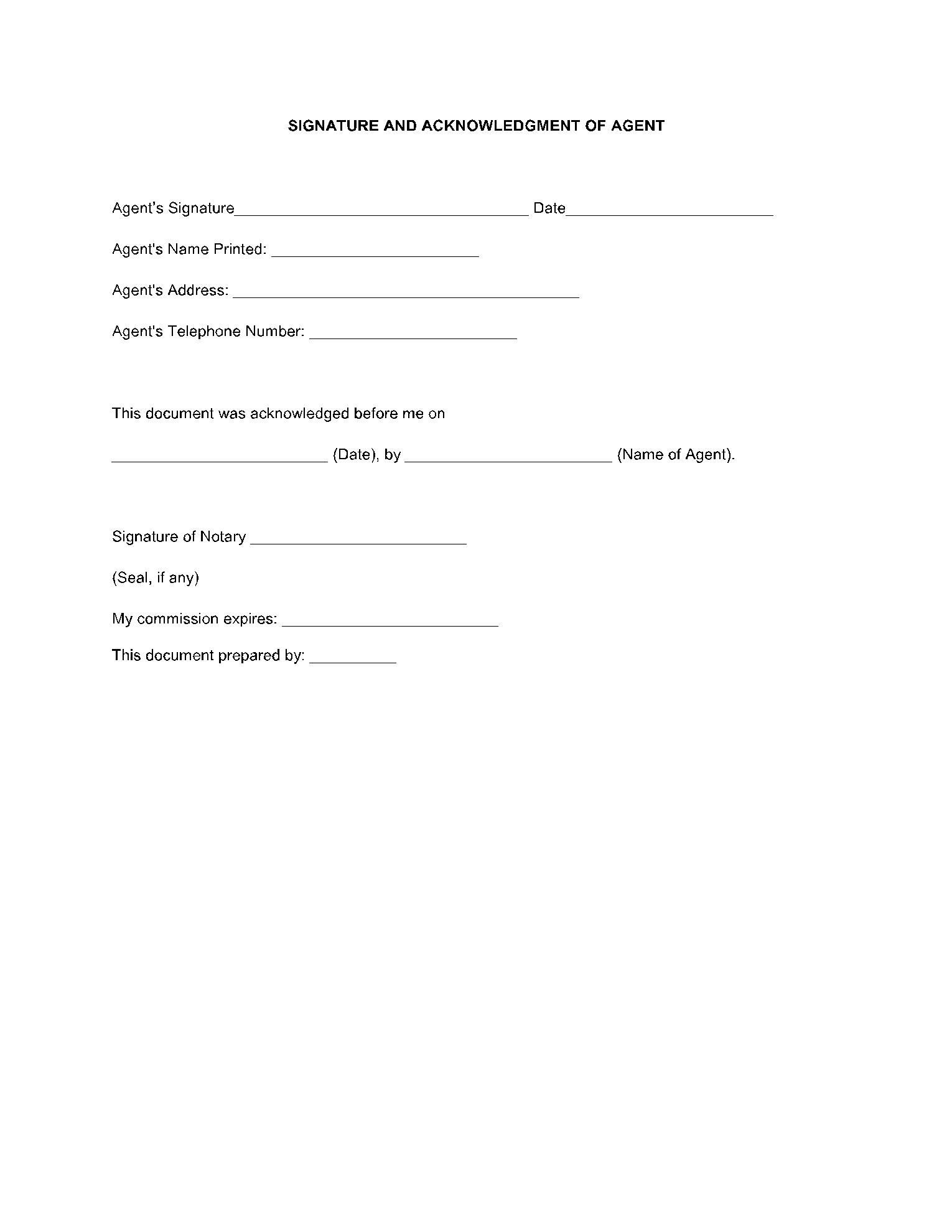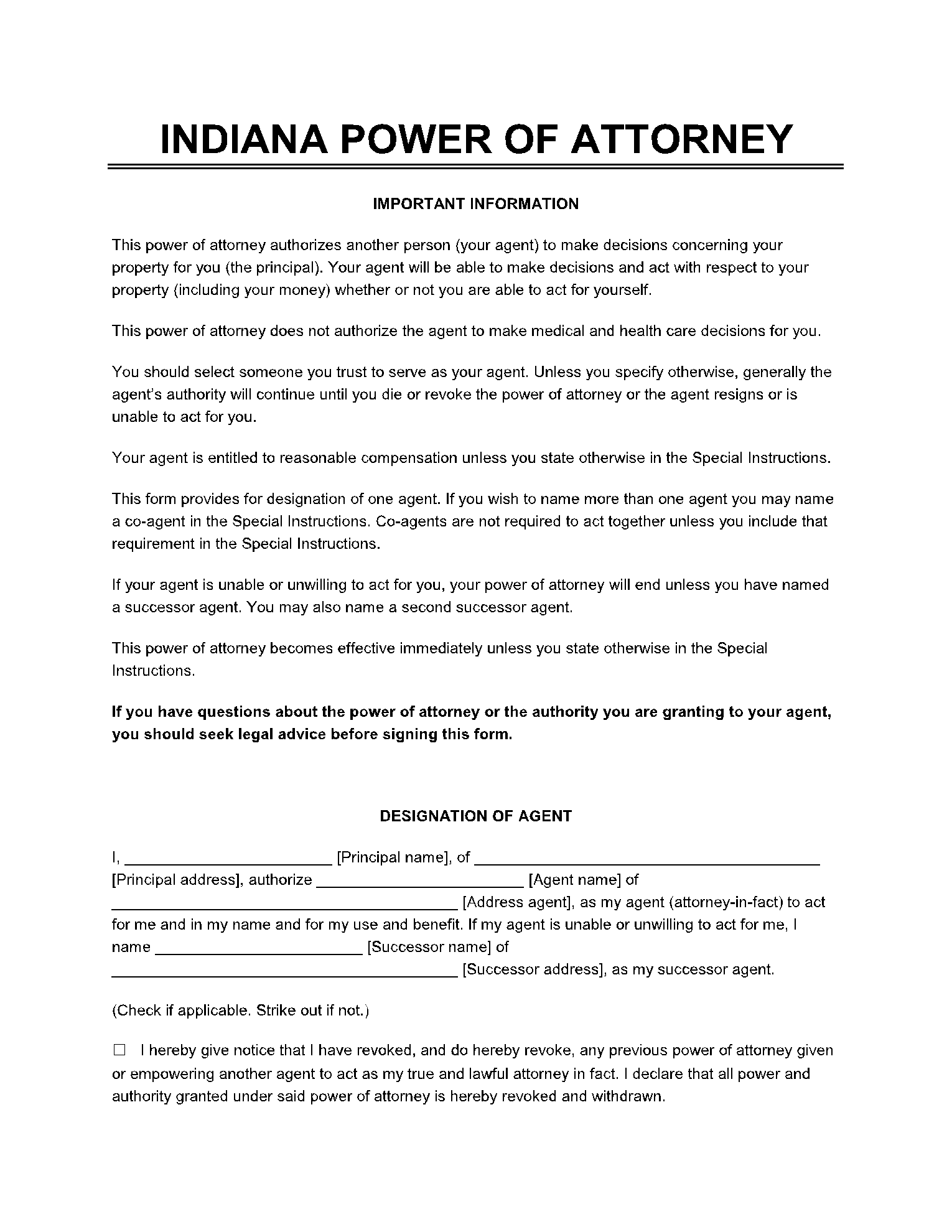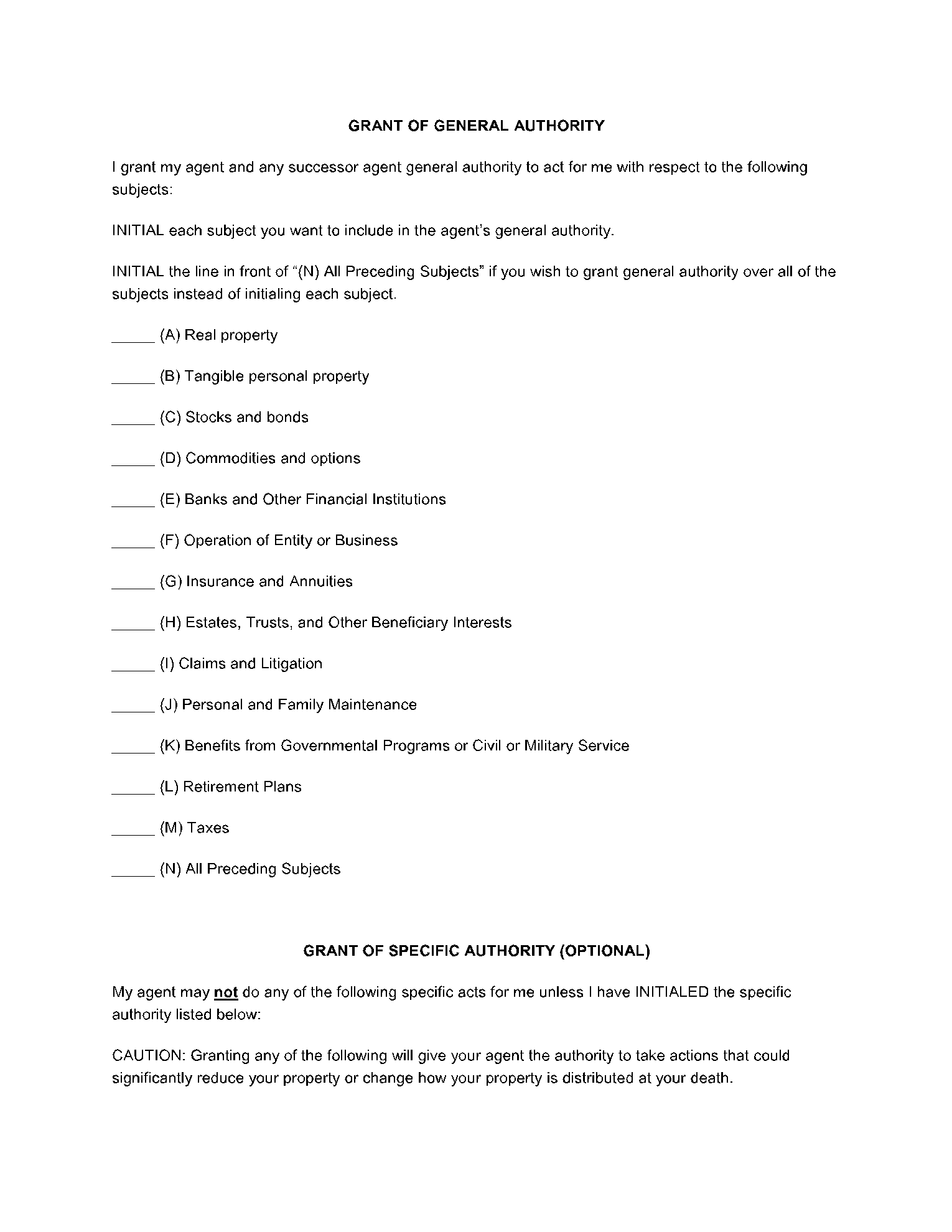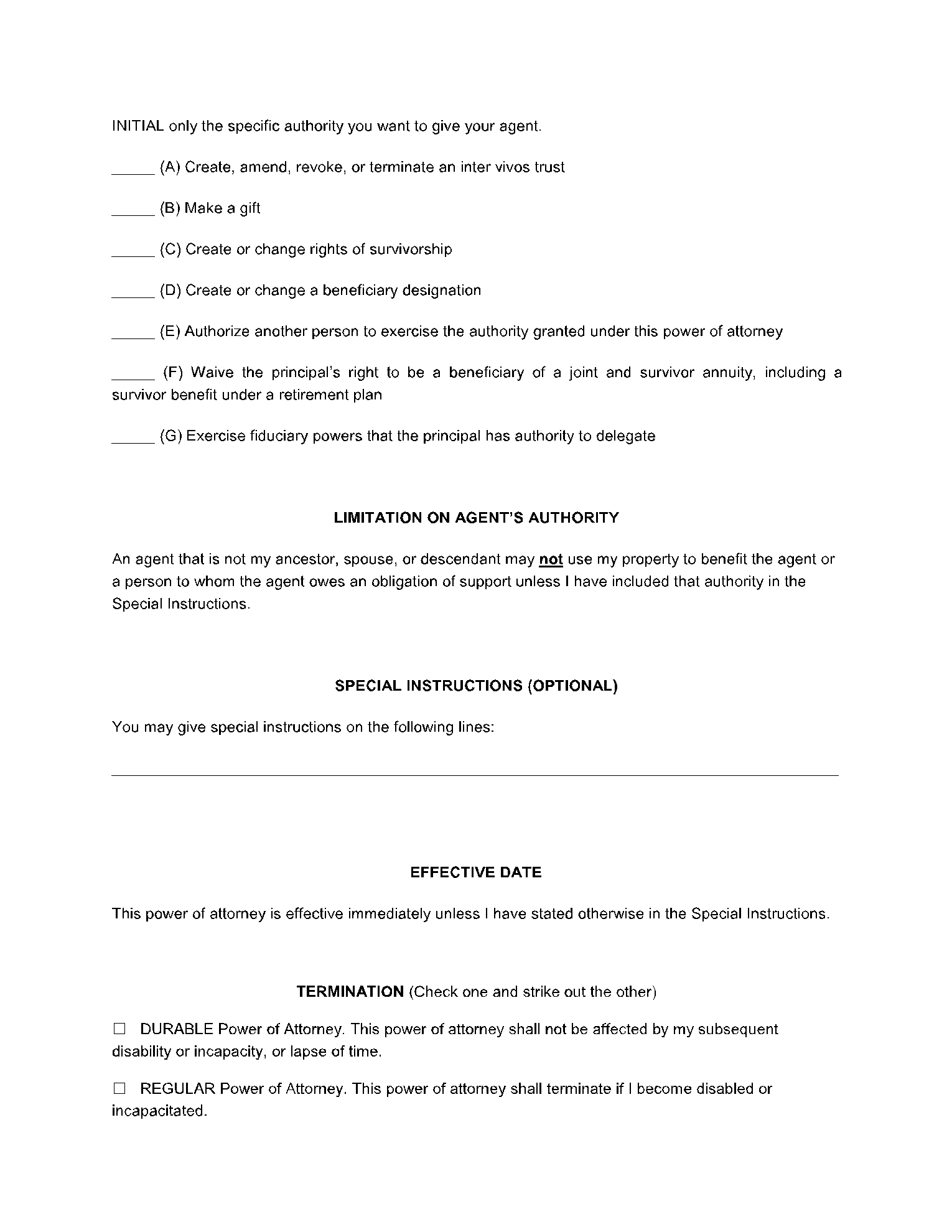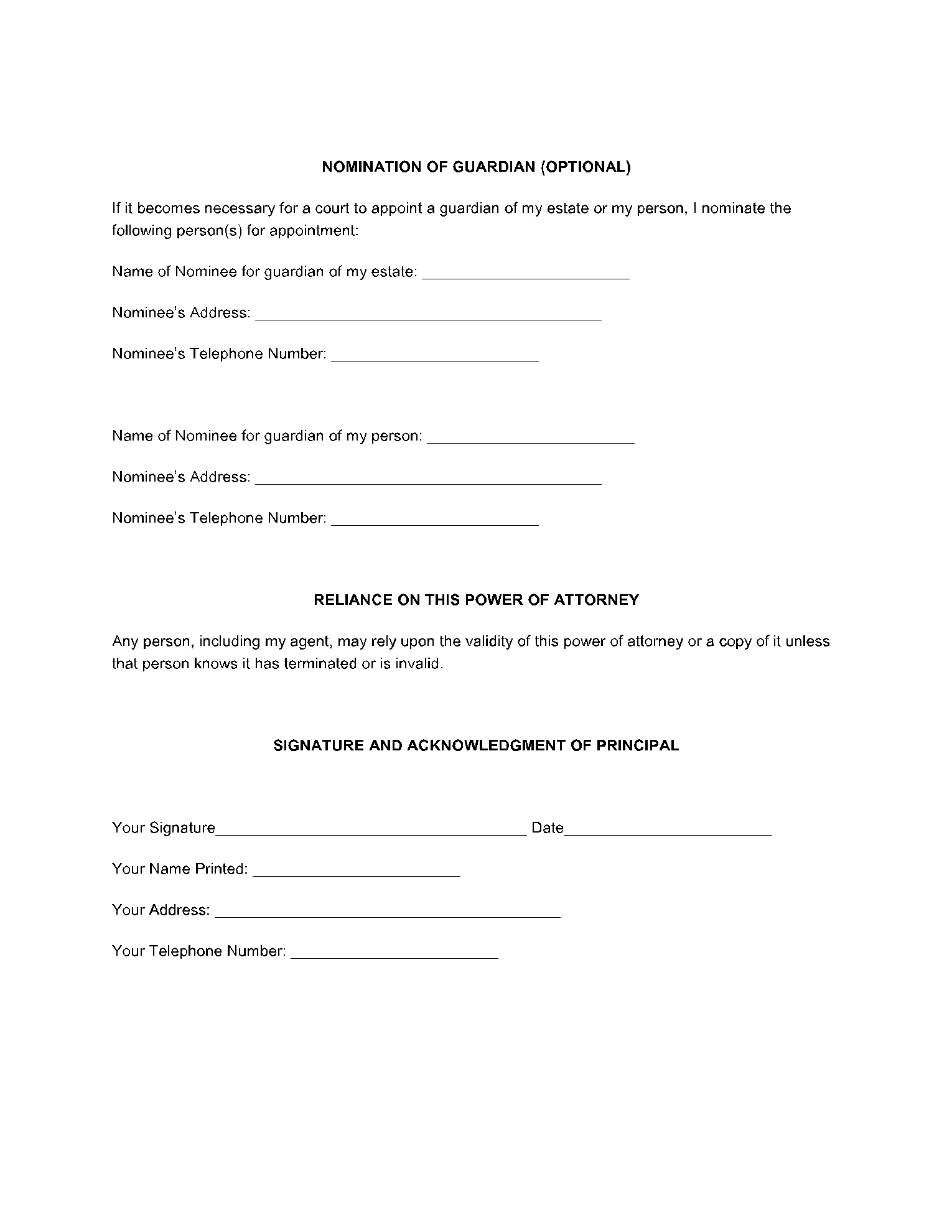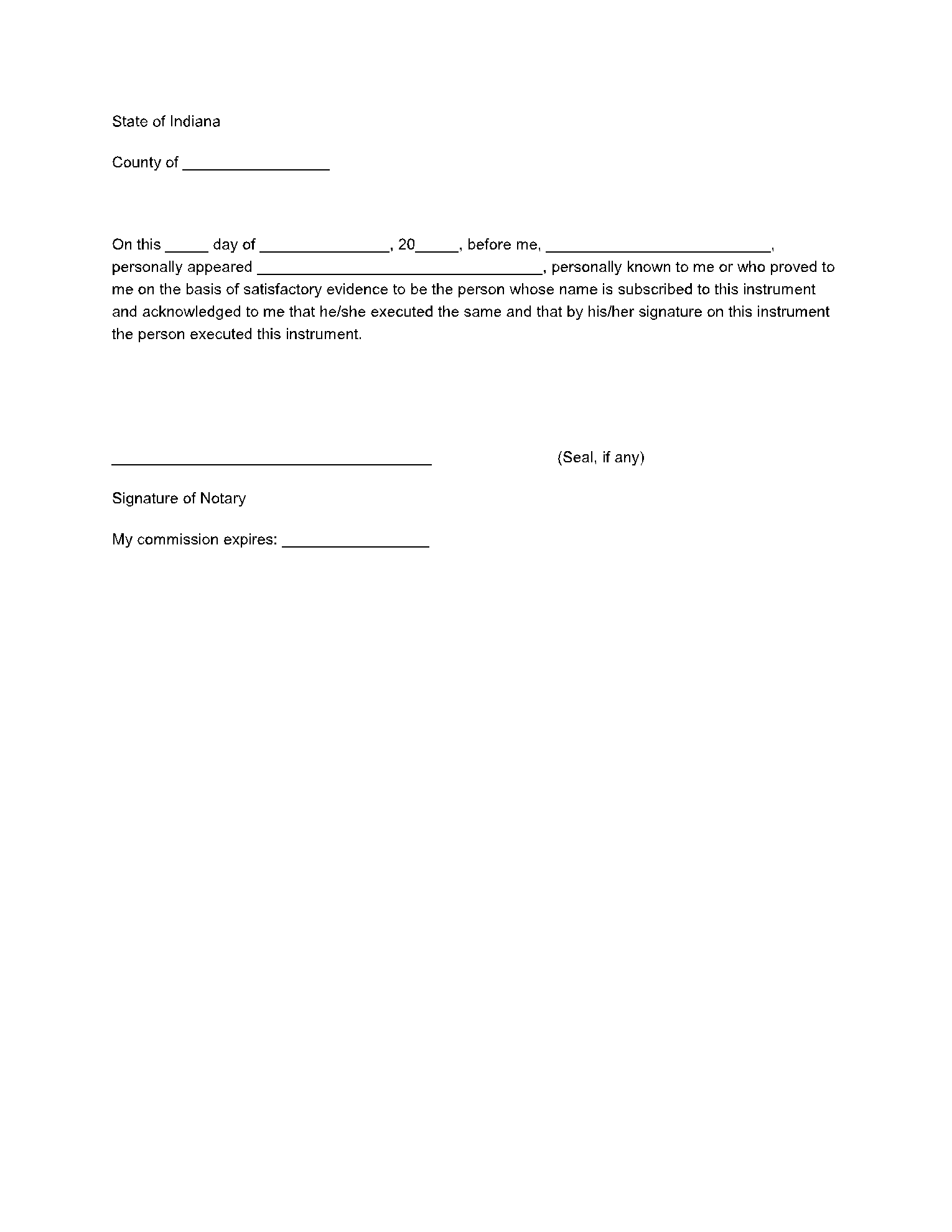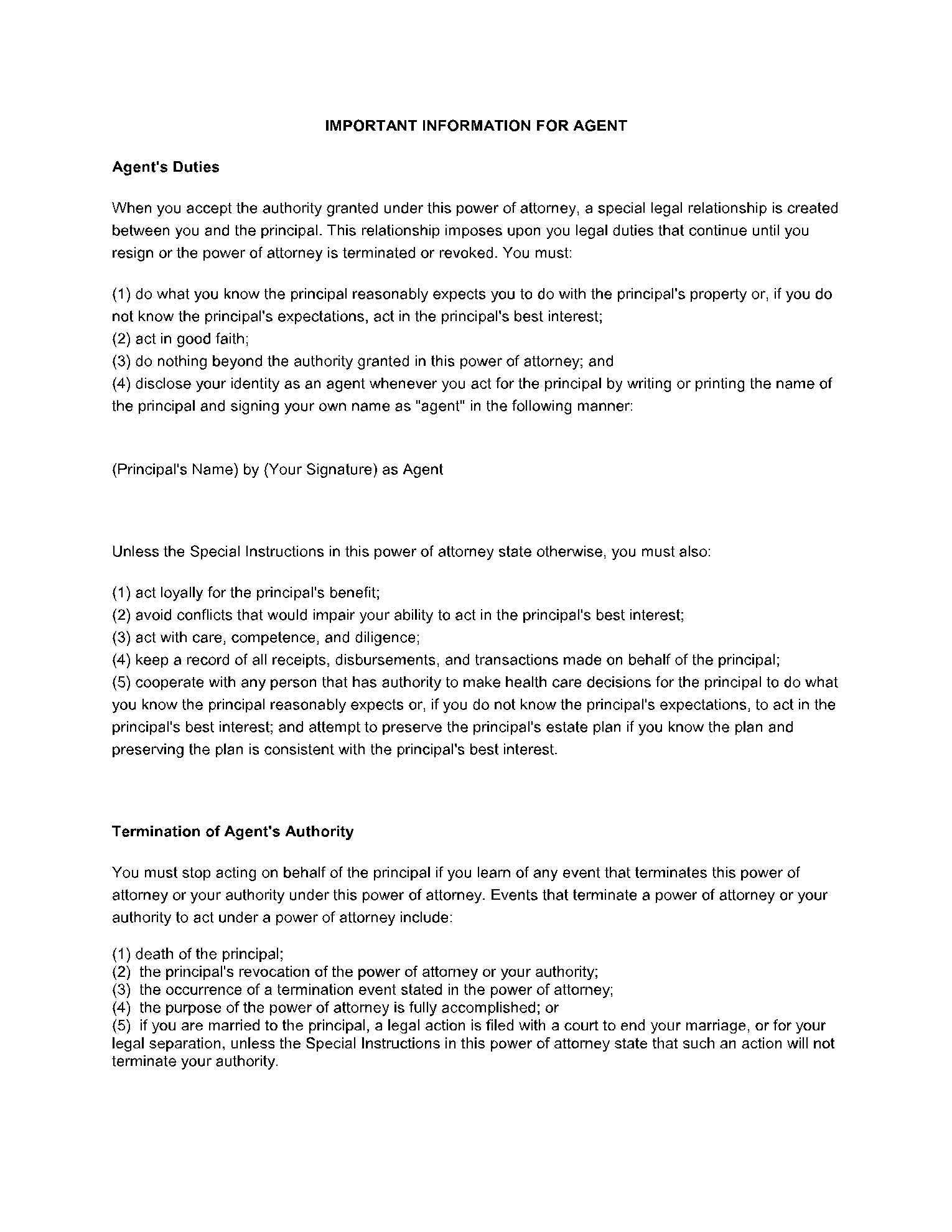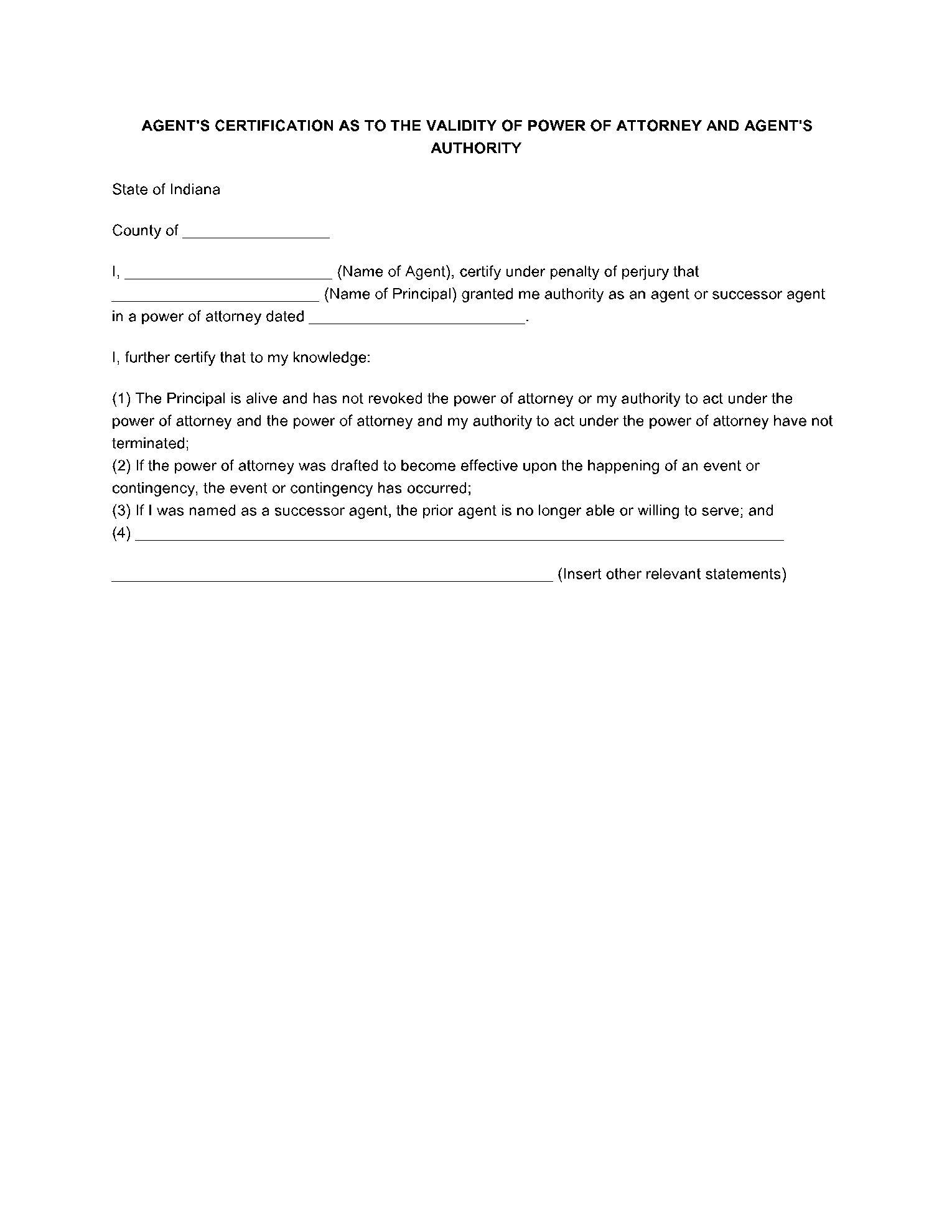Indiana Power of attorney form is a document that allows a person to authorize someone else to make appropriate decisions or actions for him/her, especially about financial or medical matters. The person authorizing the decision-making power to another person is known as the ‘principal.’ In contrast, the person who now receives the power to make decisions for the principal is called an ‘agent’ or ‘attorney-in-fact.’
Every state has its own requirements and processes to file and complete a power of attorney document. This post will provide a detailed guide regarding the power of attorney and its requirements in the state of Indiana.
Here are some of the essential components of our template of power of attorney form Indiana:
-
- Customization Options
- Separate sections for power authorization, cancellation, etc.
- Details about both the principal and the agent
- Terms and conditions
- Power of attorney commencement and expiry date
What is an Indiana Power of Attorney?
A power of attorney form Indiana serves as a legally valid document for the principal to let another trusted person – an agent – to make decisions or act on his/her behalf. But there are different types of power of attorney which further explain when, how, and under what conditions the agent can act in place of the principal and what the agent can and cannot do.
Durable POA
A durable power of attorney Indiana stays in effect indefinitely unless the principal revokes it. It will also be revoked upon the death of the principal.
Non-durable POA
Usually, non-durable POAs have an expiry date or condition set by the principal, or they get revoked automatically when the principal becomes incapacitated.
Springing POA
When the principal prepares a POA that doesn’t come into effect immediately but is activated by a specific event or condition in the future, it’s known as a springing POA. While durable and non-durable POAs relate to how long power of attorney remains effective, a springing POA determines when it will come into effect.
Financial POA
A financial power of attorney allows the agent to make financial decisions for the principal, such as filing taxes, managing personal and professional finances, making payments, or signing important financial documents. The principal can and should specify in clear words what decisions and actions the agent is allowed to make.
Medical POA
Medical POAs allow the agent to make healthcare decisions for the principal. These are mainly used by aging people who can no longer look after themselves, or people suffering from serious illnesses that can incapacitate them at any point in time.
What To Include In An Indiana Power Of Attorney Form?
When preparing a power of attorney Indiana, the principal must have a POA form which needs to be filled up with the following information:
- Names and addresses of both the principal and the agent
- The main body of the POA has a list of all decisions, actions, and powers that the principal can transfer to the agent. The principals must fill their initials in front of those sections that they wish to grant authority to their agent.
- Effective and expiry date of the POA
- Signature of the principal along with the date when it’s signed
- Signature of the agent
- Signature of two witnesses and a notary
Benefits Of Having The Indiana Power Of Attorney
There are different benefits of using an Indiana power of attorney, depending on what you wish to use the document for.
- Businessmen can use the POA to appoint a representative to file taxes for them and act on their behalf when they are unable to attend important business events.
- Aging people or those suffering from grave illnesses can appoint a family member or trusted person to make health decisions for their well-being if they become unable to do so themselves.
- People involved in real estate can have their agents make property dealings – be it buying, selling, or leasing – on their behalf.
In general, the main benefit of a power of attorney is that even when you are physically absent or incapacitated, it allows your agent to work and make decisions for you.
Indiana Power of Attorney Requirements
For a power of attorney document to be filed and legally accepted in the state of Indiana, the following requirements must be met:
- The document must be in writing or print. If the POA is for tax purposes, it must be submitted to the Department of Revenue through mail or fax, along with the original hard copy.
- It must include the name of the agent and principal.
- The principal must sign it in front of a notary.
- If the principal is unable to sign the document himself/herself due to disability, he/she can choose a representative to sign it instead. The principal and representative must both be present before a notary while signing.
Frequently Asked Questions (FAQs)
-
When will the power of attorney be revoked?
A non-durable power of attorney is revoked upon reaching its expiry date or condition. Both durable and non-durable power of attorneys can be revoked any time by the principal, and are automatically terminated upon the death of the principal.
-
Can I name a company or organization as my agent in the POA?
A company or organization cannot be named as an agent in a POA. Only a person can be appointed as an agent.
-
Can my agent file taxes for me?
Yes, once you have correctly filed the POA and submitted it to the Department of Revenue, your agent can file taxes for you or your organization.
A power of attorney is an important document and includes a lot of information. But having a readymade POA template makes the process a lot simpler. At CocoSign, you can instantly access the Indiana Power of Attorney form, along with hundreds of templates on different types of POA for various states.
